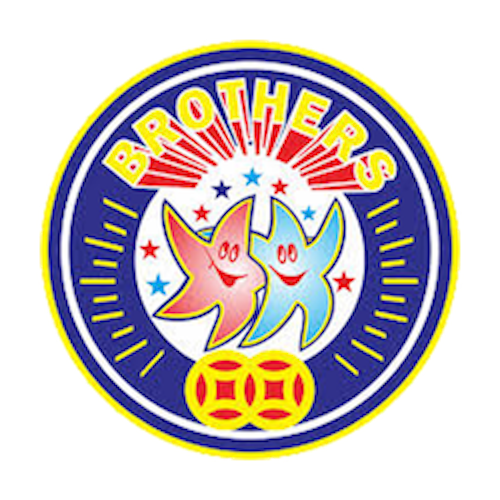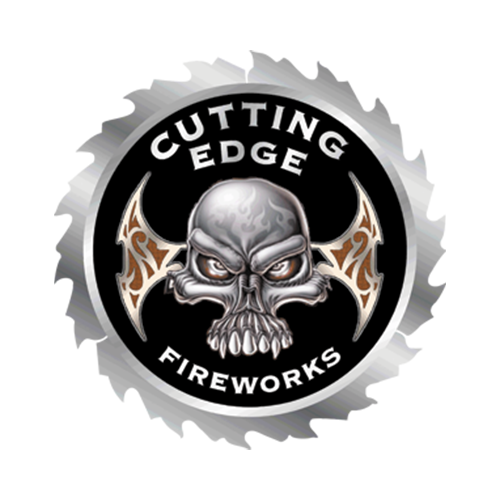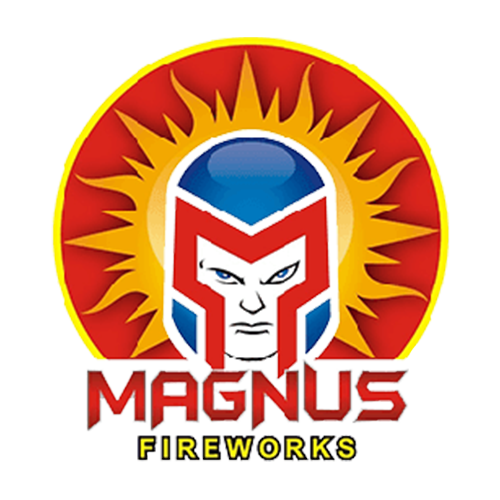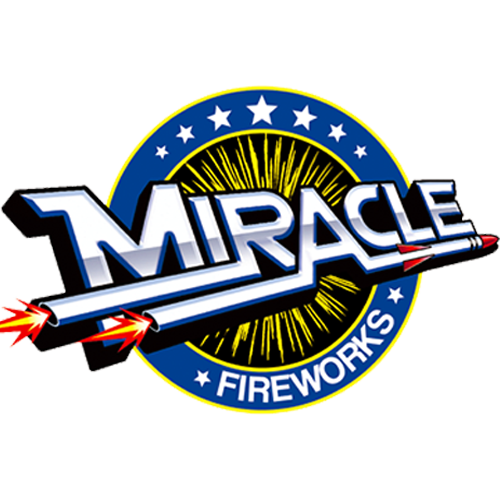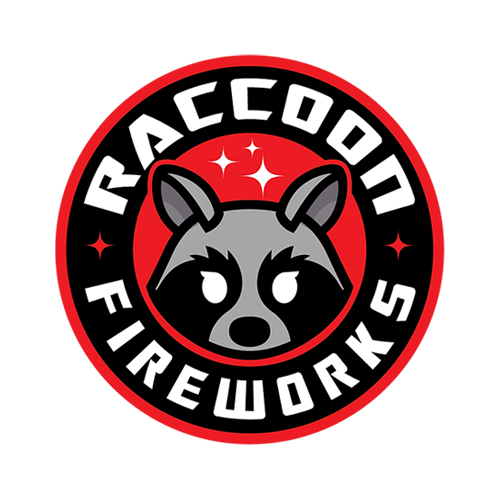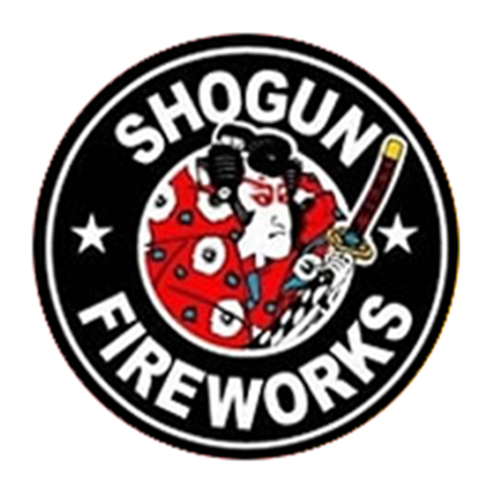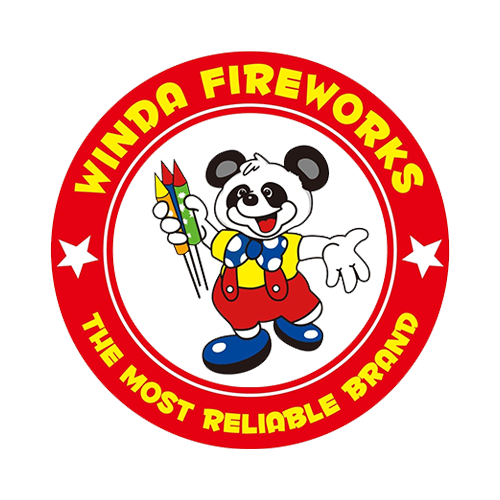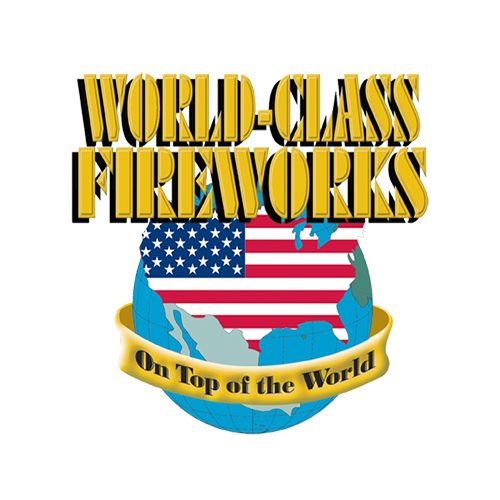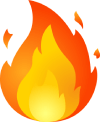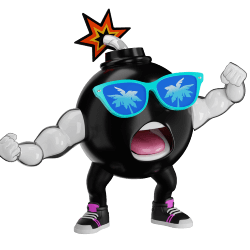SUBCHAPTER A. GENERAL PROVISIONS
Sec. 2154.001. DEFINITIONS.
In this chapter:
(1) “Commissioner” means the commissioner of insurance of Texas.
(2) “Department” means the United States Department of Transportation.
(3) “Distributor” means a person who:
(A) imports fireworks into this state; or
(B) sells fireworks to:
(i) a jobber, retailer, or other distributor for resale; or
(ii) a holder of a single public display permit, a multiple public display permit, or another fireworks permit.
(4) “Fire prevention officer” means a chief of a fire department, a fire marshal, a county fire marshal, a sheriff, a constable, another local enforcement officer primarily responsible for fire prevention, or, if there is no local fire authority, the state fire marshal.
(5) “Fireworks” means a composition or device:
(A) designed for entertainment to produce a visible or audible effect by combustion, explosion, deflagration, or detonation; and
(B) defined by 49 C.F.R. Section 173.56(j) (1996).
(6) “Fireworks 1.3G” means a large fireworks device:
(A) primarily designed to produce visible or audible effects by combustion, deflagration, or detonation; and
(B) classified as a 1.3G explosive by the department in 49 C.F.R. Part 173 (1996).
(7) “Fireworks 1.4G” means a small fireworks device:
(A) primarily designed to produce visible or audible effects by combustion, deflagration, or detonation;
(B) that complies with the construction, labeling, and chemical composition requirements of the United States Consumer Product Safety Commission in 16 C.F.R. Part 1507 (1996), or the most recently adopted version of that rule; and
(C) that is classified by the department in 49 C.F.R. Part 173 (1996).
(8) “Illegal fireworks” means a fireworks device manufactured, distributed, or sold in violation of this chapter.
(9) “Indoor or proximate display” means a pyrotechnic display involving the ignition of Fireworks 1.3G or Fireworks 1.4G for public amusement where an audience is closer to the pyrotechnic devices than permitted by NFPA 1123 Code of Fireworks Display. The term does not include the use of Fireworks 1.4G by a retail consumer for private or personal amusement.
(10) “Insurance agent” means:
(A) a person, firm, or corporation licensed under Subchapter B, C, D, or E, Chapter 4051, or Chapter 981, Insurance Code;
(B) a salaried, state, or special agent; and
(C) a person authorized to represent an insurance fund or pool created by a city, county, or other political subdivision of the state under Chapter 791, Government Code.
(11) “Jobber” means a person who purchases fireworks only for resale to retailers.
(12) “Manufacturer” means a person, firm, corporation, or association who makes fireworks.
(13) “Person” means an individual or entity, including an owner, manager, officer, employee, or occupant.
(14) “Public display” means the igniting of Fireworks 1.3G for public or private amusement.
(15) “Pyrotechnic operator” means an individual who, by experience, training, and examination, has demonstrated the necessary skill and ability for safely assembling, discharging, and supervising public displays of Fireworks 1.3G or Fireworks 1.4G.
(16) “Pyrotechnic special effects operator” means an individual who, by experience, training, and examination, has demonstrated the necessary skill and ability for safely assembling, discharging, and supervising proximate displays of Fireworks 1.3G or Fireworks 1.4G.
(17) “Retailer” means a person who purchases fireworks for resale only to the general public.
(18) “Sale” means selling or offering for sale merchandise, equipment, or service, at wholesale or retail, to the public or to any person, for an agreed sum of money or other consideration.
(19) “State fire marshal” means the chief law enforcement officer of the state charged with the responsibility of fire prevention.
Sec. 2154.002. EXEMPTIONS.
This chapter does not apply to:
(1) a toy pistol, toy cane, toy gun, or other device that uses paper or plastic caps in sheets, strips, rolls, or individual caps that contain not more than an average of 25 hundredths of a grain of explosive composition per cap and that is packed and shipped under 49 C.F.R. Part 173 (1996);
(2) a model rocket or model rocket motor designed, sold, and used to propel recoverable aero models;
(3) a propelling or expelling charge consisting of a mixture of sulfur, charcoal, and potassium nitrate;
(4) novelties or trick noisemakers;
(5) the sale, at wholesale, of any type of fireworks by a resident manufacturer, distributor, importer, or jobber if the fireworks are intended for shipment directly out of state under department regulations;
(6) the sale or use of, in emergency situations, pyrotechnic signaling devices or distress signals for marine, aviation, or highway use;
(7) the use of a fuse or a railway torpedo by a railroad;
(8) the sale of blank cartridges for:
(A) use in a radio, television, film, or theater production;
(B) a signal or ceremonial purpose in an athletic event; or
(C) an industrial purpose; or
(9) the use of a pyrotechnic device by a military organization.
Sec. 2154.003. PERMISSIBLE FIREWORKS.
(a) Except as provided by Subsection (b), Fireworks 1.4G are permissible fireworks.
(b) The following are not permissible fireworks:
(1) sky rockets or “bottle rockets” with:
(A) a total propellant charge of less than four grams;
(B) a casing size of less than five-eighths of an inch for the outside diameter and less than 3-1/2
inches in length; and
(C) an overall length, including stick, of less than 15 inches; and
(2) other fireworks determined not acceptable by the United States Consumer Product Safety Commission.
(c) The term “bottle rocket” may not be used in association with the advertisement or sale of fireworks.
(d) In addition to the items described by Subsection (b), pop rockets with a propellant casing length of less than five inches, an exterior diameter of less than three-fourths of an inch, and an overall total rocket length of less than 26 inches are not permissible fireworks.
Sec. 2154.004. EFFECT OF CHAPTER ON LOCAL REGULATION.
(a) A municipal or county ordinance, order, or rule in effect on January 2, 1986, is not invalidated by this chapter.
(b) This chapter does not limit or restrict the authority of a county, where specifically authorized by law, or municipality to enact an ordinance or order prohibiting or further regulating fireworks.
SUBCHAPTER B. COMMISSIONER’S POWERS AND DUTIES
Sec. 2154.051. COMMISSIONER’S POWERS AND DUTIES.
(a) The commissioner shall:
(1) determine reasonable criteria and qualifications for licenses and permits;
(2) set license and permit fees;
(3) determine the qualifications and examination requirements for pyrotechnics operators; and
(4) establish a procedure for reporting and processing complaints.
(b) The commissioner may, after notice and opportunity for hearing, increase or decrease the limits of insurance coverage.
Sec. 2154.052. RULES.
(a) The commissioner:
(1) shall administer this chapter through the state fire marshal; and
(2) may issue rules to administer this chapter in compliance with Section 2154.054.
(b) The commissioner shall adopt and the state fire marshal shall administer rules the commissioner considers necessary for the protection, safety, and preservation of life and property, including rules regulating:
(1) the issuance of licenses and permits to persons engaged in manufacturing, selling, storing, possessing, or transporting fireworks in this state;
(2) the conduct of public fireworks displays; and
(3) the safe storage of Fireworks 1.3G and Fireworks 1.4G.
(c) The commissioner shall adopt rules for applications for licenses and permits.
(d) In adopting a rule, the commissioner may use standards recognized by federal law or regulation and standards published by a nationally recognized standards-making organization.
(e) A rule may not be adopted under this chapter that is more restrictive than a rule in effect on September 1, 1998, without specific statutory authority.
Sec. 2154.053. RULES RESTRICTING ADVERTISING OR COMPETITIVE BIDDING.
(a) The commissioner may not adopt rules restricting advertising or competitive bidding by a license or permit holder under this chapter except to prohibit false, misleading, or deceptive practices.
(b) The commissioner may not include in the rules to prohibit false, misleading, or deceptive practices a rule that:
(1) restricts the use of any advertising medium;
(2) restricts the holder’s personal appearance or the use of a holder’s voice in an advertisement;
(3) relates to the size or duration of an advertisement by the holder; or
(4) restricts the holder’s advertisement under a trade name.
Sec. 2154.054. ADVISORY COUNCIL.
(a) The commissioner shall establish an advisory council to assist the commissioner in administering this chapter.
(b) The council is composed of five members as follows:
(1) four members who are representatives from the fireworks industry; and
(2) one member who is a representative of a county fire marshal’s office and who has at least five years of experience as a county fire marshal.
(c) On request by the commissioner, the following may recommend individuals for appointment to the council:
(1) the Texas Pyrotechnic Association or the Texas Fireworks Association for appointments under Subsection (b)(1); and
(2) the Texas Fire Marshal’s Association for an appointment under Subsection (b)(2).
(d) A council member serves at the will of the commissioner.
(e) The council shall periodically review rules relating to this chapter and recommend changes in the rules to the commissioner.
(f) Notwithstanding Section 2001.031, Government Code, the commissioner shall submit all proposed changes and additions to the rules that relate to administration of this chapter to the council for development. If the commissioner does not approve a rule developed by the council, the commissioner shall indicate to the council the reasons that the commissioner did not approve the rule and return the rule to the council for further development.
Sec. 2154.055. FIREWORKS SAFETY AND EDUCATION PROGRAM.
(a) The commissioner shall establish a fireworks safety and education program.
(b) The program:
(1) shall provide information relating to the proper and safe use of fireworks and the dangers of the improper use of fireworks; and
(2) may include any method of communicating the need for safe use of fireworks and the dangers of improper use.
(c) The program shall be administered by the advisory council established under Section 2154.054. The commissioner must approve a program that the advisory council proposes to present.
(d) To fund the program, in addition to any other license or permit fees:
(1) the holder of a retail permit issued under Section 2154.202 shall pay, on issuance or renewal of the permit, a fee in the amount of $10; and
(2) the holder of a manufacturer’s, distributor’s, or jobber’s license issued under Section 2154.151, 2154.152, or 2154.153 shall pay, on issuance or renewal of the license, a fee in the amount of $250.
(e) Money collected under Subsection (d) may be used only by the commissioner for the purposes of this section.
SUBCHAPTER C. LICENSE REQUIREMENTS
Sec. 2154.101. GENERAL REQUIREMENTS.
(a) A person must obtain an appropriate license to:
(1) engage in the business of manufacturing, distributing, jobbing, or importing fireworks to be sold or used
in this state; or
(2) supervise or conduct public fireworks displays.
(b) A person who is younger than 21 years of age may not be issued a pyrotechnic operator’s license. The
minimum age of a person issued another license under Subchapter D is 18 years of age.
(c) A person may not:
(1) transfer a license; or
(2) obtain or attempt to obtain a license by fraudulent representation.
(d) A person may not alter or deface a license. An altered or defaced license is void.
Sec. 2154.102. WAIVER OF EXAMINATION REQUIREMENT.
The commissioner may waive an examination requirement for an applicant with a valid license from another state if, in the commissioner’s opinion, the license requirements of the other state are substantially equivalent to those of this state.
Sec. 2154.1025. STATE FIRE MARSHAL’S AUTHORITY REGARDING EXAMINATIONS; RULES.
(a) The state fire marshal shall establish the scope and type of an examination required under this chapter.
(b) The state fire marshal may administer the examination or may enter into an agreement with a testing service.
(c) The state fire marshal shall adopt rules as necessary to implement examination requirements under this chapter.
Sec. 2154.1026. USE OF TESTING SERVICE FOR EXAMINATION.
(a) If a testing service is used, the state fire marshal may contract with the testing service regarding requirements for the examination required by this chapter, including examination development, scheduling, site arrangements, grading, reporting, analysis, or other administrative duties.
(b) The state fire marshal may require the testing service to:
(1) correspond directly with an applicant regarding the administration of the examination;
(2) collect a reasonable fee from an applicant for administering the examination; or
(3) administer the examination at a specific location or time.
Sec. 2154.103. EXAMINATION RESULTS.
(a) The state fire marshal shall notify each examinee of the results of the examination not later than the 30th
day after the date an examination is administered.
(b) If the examination is conducted, graded, or reviewed by a testing service, the state fire marshal shall notify the examinee of the result of the examination not later than the 14th day after the date the state fire marshal receives the result from the testing service.
(c) If the notice of the examination result will be delayed for longer than 90 days after the examination date, the state fire marshal shall notify the examinee of the reason for the delay before the 90th day.
(d) If requested in writing by a person who fails the licensing examination, the state fire marshal shall send the person an analysis of the person’s performance on the examination.
(e) The state fire marshal may require a testing service to notify a person of the results of the person’s examination.
Sec. 2154.104. DUPLICATE LICENSE; LICENSE CHANGES.
A person must be charged a fee in an amount not to exceed $20 for a duplicate license issued by the commissioner and for any requested change to a license.
Sec. 2154.105. LICENSE EXPIRATION DATE.
(a) The commissioner by rule may provide for different expiration dates for the various types of licenses.
(b) If the expiration date of a license is less than one year from the date of its issuance or anniversary date, the license fee shall be prorated on the basis of the number of months during which the license is valid. The total annual fee is payable each time the license is renewed.
Sec. 2154.106. LICENSE RENEWAL.
(a) A license holder may renew an unexpired license by paying the required renewal fee to the state fire marshal any time before the license expires.
(b) Not later than the 30th day before the expiration date of a license, the state fire marshal shall send written notice of the impending license expiration to the license holder at the license holder’s last known address.
(c) A person whose license has been expired for 90 days or less may renew the license by paying to the state fire marshal the required annual fee and an additional amount equal to one-half of the original license fee.
(d) A person whose license has been expired for more than 90 days but less than two years may renew the license by paying to the state fire marshal all unpaid annual fees and an additional amount equal to the original license fee.
(e) A person may not renew a license that has been expired for two years or more. The person may obtain a new license by complying with the requirements and procedures for obtaining an original license.
(f) This section does not prevent the state fire marshal from denying or refusing to renew a license for any reason provided by law or the rules of the commissioner.
SUBCHAPTER D. TYPES OF LICENSES
Sec. 2154.152. DISTRIBUTOR’S LICENSE.
(a) A person must be a licensed distributor if the person:
(1) imports into this state or stores, possesses, and sells Fireworks 1.3G to a licensed pyrotechnic operator or distributor or to a single public display, multiple public display, or agricultural, industrial, and wildlife control fireworks permit holder; or
(2) imports or stores, possesses, and sells Fireworks 1.4G to a licensed jobber, retailer, or distributor in this state.
(b) The commissioner shall set and collect an annual distributor’s license fee in an amount not to exceed $1,500.
Sec. 2154.153. JOBBER’S LICENSE.
(a) A person must be a licensed jobber if the person stores, possesses, and sells Fireworks 1.4G only to retailers in this state.
(b) The commissioner shall set and collect an annual jobber’s license fee in an amount not to exceed $1,000.
SUBCHAPTER E. PERMIT REQUIREMENTS
Sec. 2154.201. GENERAL REQUIREMENTS.
(a) A person who is younger than 21 years of age may not be issued a public fireworks display permit. A
person who is younger than 18 years of age may not be issued another permit under this subchapter.
(b) A person may not:
(1) transfer a permit issued under this subchapter; or
(2) obtain or attempt to obtain a permit under this subchapter by fraudulent representation.
(c) A person may not alter or deface a permit. An altered or defaced permit is void.
Sec. 2154.202. RETAIL FIREWORKS PERMIT.
(a) A person selling fireworks directly to the public must annually obtain a nonrenewable retail fireworks permit for each retail location.
(b) The commissioner shall set and collect a retail fireworks permit fee in an amount not to exceed $20.
(c) A retail fireworks permit may be purchased from a licensed manufacturer, distributor, or jobber or from the state fire marshal’s office.
(d) A licensed manufacturer, distributor, or jobber may obtain retail fireworks permits from the commissioner at any time. The commissioner shall provide permits in books containing 20 permits each. Each permit must be clearly printed with the year, date, and permit number. The manufacturer, distributor, or jobber shall keep a record of all permits issued and shall submit the record to the commissioner through the state fire marshal in the manner required by the commissioner.
(e) A retail fireworks permit expires on January 31 each year and is not renewable.
(f) An outdated permit may be exchanged for a current permit only in the year following the permit’s expiration.
(g) A retail fireworks permit holder may sell fireworks only to the public, and only during periods:
(1) beginning June 24 and ending at midnight on July 4;
(2) beginning December 20 and ending at midnight on January 1 of the following year; and
(3) beginning May 1 and ending at midnight on May 5 if the fireworks are sold at a location that is not more than 100 miles from the Texas-Mexico border and that is in a county in which the commissioners court of the county has approved the sale of fireworks during the period.
(h) In addition to the periods during which the sale of fireworks is authorized under Subsection (g), the commissioners court of a county by order may allow a retail fireworks permit holder to sell fireworks in that county only to the public and only during one or more of the following periods:
(1) beginning February 25 and ending at midnight on March 2;
(2) beginning April 16 and ending at midnight on April 21; and
(3) beginning the Wednesday before the last Monday in May and ending at midnight on the last Monday in May.
SUBCHAPTER F. PROHIBITED ACTS
Sec. 2154.251. PROHIBITED USE OF FIREWORKS.
(a) A person may not:
(1) explode or ignite fireworks within 600 feet of any church, a hospital other than a veterinary hospital, an
asylum, a licensed child care center, or a public or private primary or secondary school or institution of higher education unless the person receives authorization in writing from that organization;
(2) sell at retail, explode, or ignite fireworks within 100 feet of a place where flammable liquids or flammable compressed gasses are stored and dispensed;
(3) explode or ignite fireworks within 100 feet of a place where fireworks are stored or sold;
(4) ignite or discharge fireworks in or from a motor vehicle;
(5) place ignited fireworks in, or throw ignited fireworks at, a motor vehicle;
(6) conduct a public fireworks display that includes Fireworks 1.3G unless the person is a licensed pyrotechnic operator;
(7) conduct a proximate display of fireworks that includes Fireworks 1.3G or Fireworks 1.4G as defined in NFPA 1126 Standards for the Use of Pyrotechnics Before a Proximate Audience unless the person is a licensed pyrotechnic special effects operator and has the approval of the local fire prevention officer; or
(8) sell, store, manufacture, distribute, or display fireworks except as provided by this chapter or rules adopted by the commissioner under this chapter.
(b) A person may not manufacture, distribute, sell, or use fireworks in a public fireworks display or for agricultural, industrial, or wildlife control purposes without an appropriate license or permit. Fireworks manufactured, distributed, sold, or used without an appropriate license or permit are illegal fireworks.
Sec. 2154.252. CERTAIN SALES OF FIREWORKS PROHIBITED.
a) Unless the fireworks conform to the standards of the United States Consumer Product Safety Commission and the department, a person in this state may not:
(1) sell the fireworks at retail;
(2) offer the fireworks for retail sale;
(3) possess the fireworks for retail sale in this state; or
(4) transport, use, or explode the fireworks in this state.
(b) A person may offer for sale to the general public Fireworks 1.4G only at authorized retail locations. All mail order sales of Fireworks 1.4G are prohibited.
(c) Fireworks may not be sold or offered for sale to children under 16 years of age or to an intoxicated or incompetent person. A person selling fireworks at retail shall make a reasonable effort to determine that potential purchasers of fireworks are of the minimum age required by this subsection.
(d) A licensed manufacturer, distributor, jobber, or importer may not sell fireworks to a person who does not hold a license or permit.
Sec. 2154.254. EMPLOYMENT OF MINORS.
(a) Except as provided by Subsection (c), a person may not employ or allow a person younger than 16 years of age to manufacture, distribute, sell, or purchase fireworks in the course of the person’s business.
(b) Except as provided by Subsection (c), a person may not employ a person 16 years of age or older but younger than 18 years of age to sell fireworks at a retail sales location unless the person selling fireworks at that location is accompanied by another person who is at least 18 years of age.
(c) An owner of a retail sales location may employ a person who is otherwise prohibited from engaging in that activity by Subsection (a) or (b) to sell fireworks at the owner’s retail sales location if the person employed is:
(1) a member of the owner’s immediate family;
(2) 12 years of age or older; and
(3) accompanied by another person who is at least 18 years of age while the person is engaged in selling fireworks at that location.
SUBCHAPTER G. DISCIPLINARY ACTIONS; PENALTIES
Sec. 2154.301. DISCIPLINARY POWERS OF COMMISSIONER.
(a) The commissioner may, through the state fire marshal, suspend, revoke, or refuse to issue or renew a license or permit if the commissioner finds that any provision of this chapter, or any rule adopted under this chapter, has been violated.
(b) A person who has a license or permit revoked may not reapply for the license or permit earlier than one year from the date of revocation. A person reapplying under this subsection must request a public hearing on the reissuance of the license or permit and has the burden of proving that a license or permit should be granted.
Sec. 2154.302. DISCIPLINARY HEARING.
(a) If the state fire marshal proposes to suspend, revoke, or refuse to renew a person’s license or permit, the
person is entitled to a hearing conducted by the State Office of Administrative Hearings.
(b) Disciplinary proceedings are governed by Chapter 2001, Government Code.
(c) Rules of practice adopted by the commissioner applicable to the disciplinary proceedings may not conflict with the rules adopted by the State Office of Administrative Hearings.
Sec. 2154.303. PENALTIES.
(a) A person commits an offense if the person violates Section 2154.101(b), (c)(2), or (d), 2154.151(e), or
2154.201(a), (b)(2), or (c) or Subchapter F.
(b) Except as provided by Subsection (c), an offense under this section is a Class B misdemeanor.
(c) A violation of Section 2154.251(a)(1), (2), (3), (4), (5), or (8) that results in property damage in an amount of less than $200 and does not result in bodily injury or death, or a violation of Section 2154.254(a) or (b), is
a Class C misdemeanor.
(d) Each day a violation occurs or continues constitutes a separate offense.
(e) Venue under this section is in the county in which the offense is committed or in Travis County.
(f) If the commissioner determines that a violation of this chapter creates a threat to the public safety, the commissioner may bring suit in the district court of the county in which the person who committed the offense resides or has an office to enjoin the person from engaging in the prohibited activity. The commissioner is not required to give bond as a condition to the issuance of injunctive relief.
Sec. 2154.304. SEIZURE OF ILLEGAL FIREWORKS.
(a) The state fire marshal, a fire chief, a fire marshal, their deputies, or a peace officer may seize illegal fireworks. Fireworks seized in the enforcement of this chapter shall be kept in the custody of the seizing agent or the sheriff of the county in which the fireworks were seized.
(b) The owner of the seized fireworks may file an action contesting the seizure in a district court in the county in which the fireworks were seized.
(c) Not later than the 30th day after the hearing on the seizure, the court may authorize the return of part or all of the confiscated fireworks. The court shall order any fireworks not returned to be destroyed. If an action contesting the seizure is not filed by the 30th day after the seizure, the seizing agent or the sheriff shall destroy the
fireworks.


